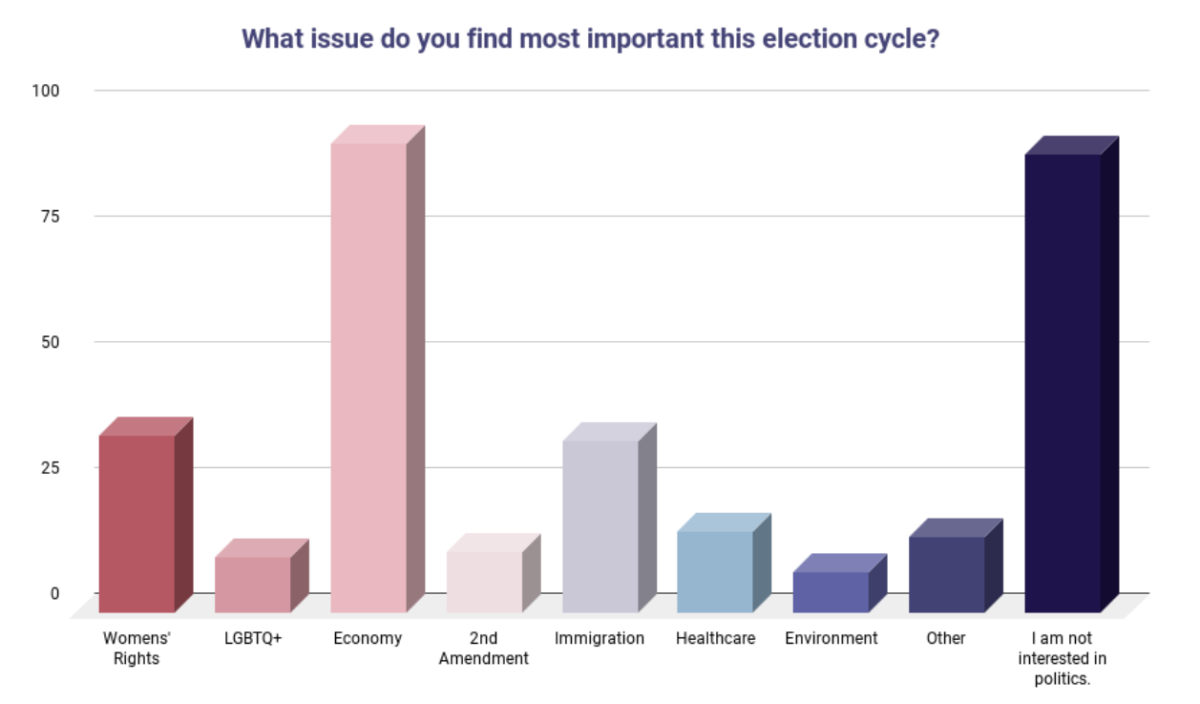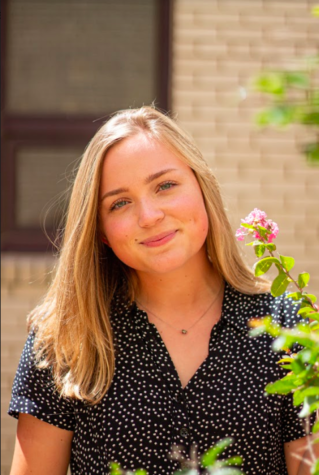
Once she got to middle school, senior Carleigh Brand noticed that teachers referred to her as “John’s sister,” which played a role in her starting to compare herself to her older brother.
Senior Carleigh Brand, then a sophomore, lay buried in blankets with tears streaming down her face. The soft melody of “Lost in You” by Kye Dreams echoed through her room. She closed her eyes tight as thoughts of the future flooded her mind.
Homework. College. Band. These topics spiraled around in her head. She knew she needed to calm herself down. She pulled out a pencil and paper and started to draw. It didn’t matter what she sketched, she just needed to get her mind off of her worries.
Her pencil glided across the paper. As leaves and flowers began to form on the page, the thoughts of school and band started to fade. The final lyrics of the song were the only sound in the room as Carleigh felt her shoulders relax and finally began to drift into sleep.
• • •
When Carleigh got home after a two hour band practice, it was already 7 p.m. She silently walked past her parents and trudged to her room, weighed down by the amount of homework she knew she had to deal with for her AP classes.
She sat down on her bed, pulling out notebooks, pens, folders, worksheets. It seemed endless, but she made a commitment. She never considered leveling down to easier classes as an option.
“I knew that I could tough it out,” Carleigh said. “I really believed in myself.”
Her eyes stung as she blinked at the essay in front of her, but all Carleigh could think about was her older brother, John.
He could handle this.
John did it all. He was a star football player. He nearly got a perfect score on the ACT and the PSAT.
“He was always seen as the golden boy by everybody, so I just kind of thought the same,” Carleigh said. “He was almost perfect. When he was taking these harder classes, I wanted to follow in his footsteps.”
She knew that if she wanted to be like her brother, her grades needed to be perfect. Better than perfect. Carleigh needed to be better than John. Anytime her grades were lower than his, she pushed herself to do better. A 95 on a test wasn’t good enough for Carleigh. John got a 96.
“I would undermine my accomplishments,” Carleigh said. “In my mind, I was still not as smart as my brother was.”
It was already 9:30 p.m. when she looked up from her essay. Her phone buzzed with a text from senior Emma Eidmann.
Everything ok?
When Emma saw her earlier that day at school, Carleigh’s tone of voice was different. Whenever she spoke, she constantly used hand motions and looked around the room as if she was waiting for something.
“You could tell something was bugging her,” Eidmann said. “I wanted to make sure she was okay.”
Carleigh picked up her phone and opened the message. Her fingers hovered over the keyboard. No. She wasn’t ok. She was physically exhausted and she finally noticed the excruciating headache that she had been ignoring for the past two hours. But she couldn’t tell that to anybody. Not her friends. Not her family. Carleigh typed out her reply and hit send.
Yeah.
• • •
She had been overwhelmed for what felt like forever. When one thing ended, another began.
“There wasn’t ever a break where there wasn’t something to stress about,” Carleigh said. “Grand nationals, now that’s over. But I still have my classes to worry about. World History is over, but I still have to worry about it because the AP test is in the spring.”
Two months later, the bell rang, releasing all students for winter break. Carleigh felt a weight lift off of her shoulders. No reviews, no responsibilities.
“I felt like I could go hang out with everybody and have fun,” Carleigh said. “I started meeting up with different people and they managed to put a smile on my face.”
Winter break was her first chance to relax in what felt like forever, and she began to notice people around her with the same exhausted eyes.
“A lot of people that I know are willing to talk about it and be like, ‘Yes I am stressed,’” Carleigh said. “Recognizing it helps the most.”
She reconnected with friends and family and talked to them about what she was going through, including Eidmann, who could tell something was bothering her friend. So when Carleigh looked like she was trying to reach out, Eidmann was there for her.
“When they have someone to talk about their stress it relieves them a little bit more because they have someone that can relate to their problem,” Eidmann said. “So her talking about her stress alleviates that.”
Carleigh felt herself getting better. She was finally managing her time and getting more sleep. She was surrounded by supportive friends and family. But most importantly, when bad days came around again, she knew how to handle them.
“I would say that there are better days because it’s 100 percent true,” Carleigh said. “A lot of people, when they’re in a deep place like that, think that there’s no way out of it. This isn’t going to be permanent. It’s just a little bit of time and everyone has survived their worst days.”












